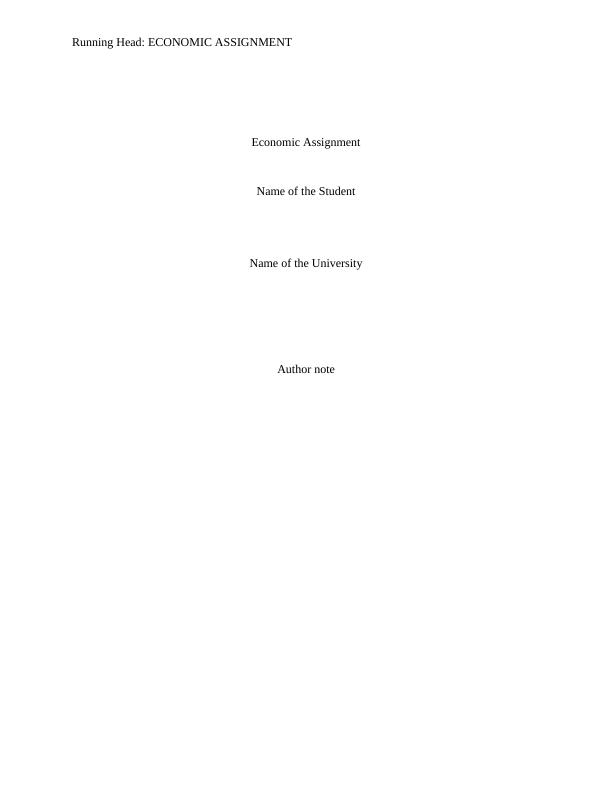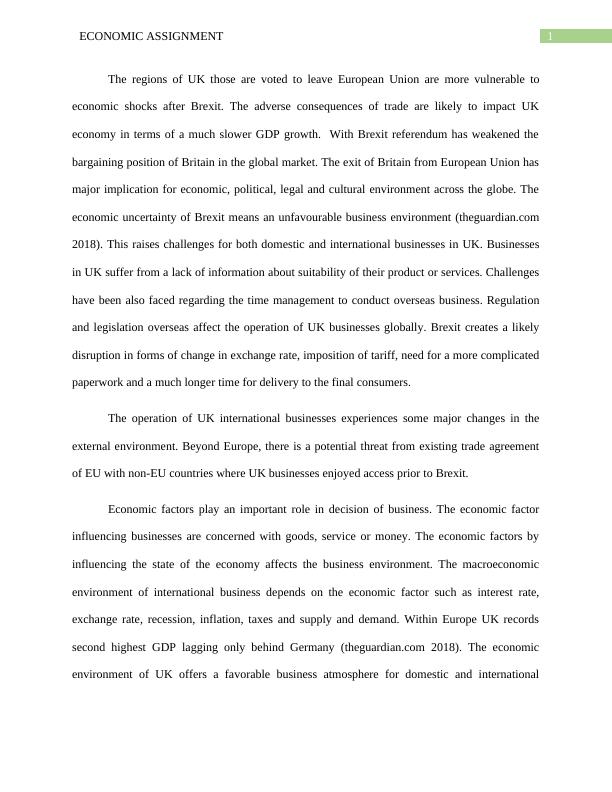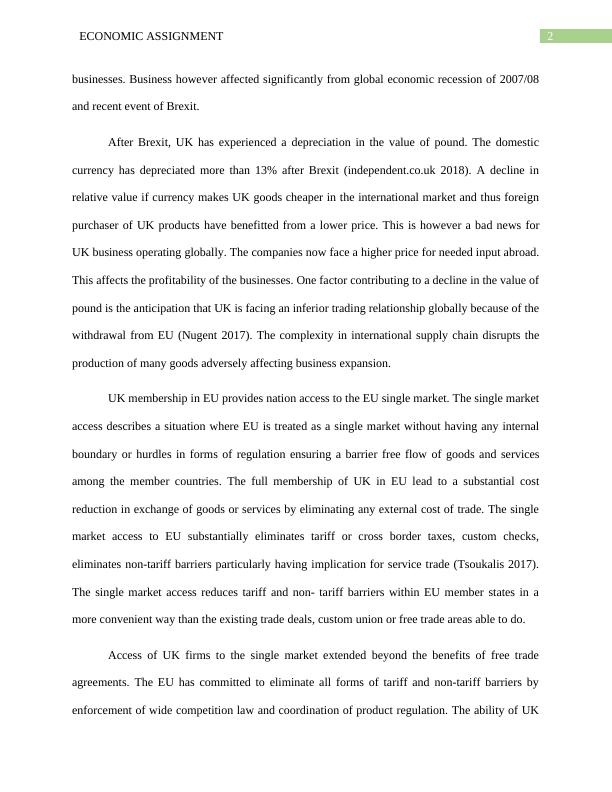Brexit and Its Implications on UK International Businesses
10 Pages2809 Words425 Views
Added on 2023-06-13
About This Document
This article discusses the impact of Brexit on UK international businesses in terms of economic, political, legal, and cultural environment. It also highlights the benefits and drawbacks of Brexit on UK businesses.
Brexit and Its Implications on UK International Businesses
Added on 2023-06-13
ShareRelated Documents
End of preview
Want to access all the pages? Upload your documents or become a member.
[PDF] Open Economy Macroeconomics
|11
|2109
|142
Brexit and Its Implications on UK Business Environment
|11
|2816
|223
Brexit and Its Impact on UK International Businesses
|12
|2838
|264
International Strategic Management: Impact of Brexit on UK, Norway, and Iceland
|9
|2682
|32
The Changing Business Environment
|8
|2336
|37
The Impact of BREXIT on Standard of Living in the UK
|11
|3878
|213



